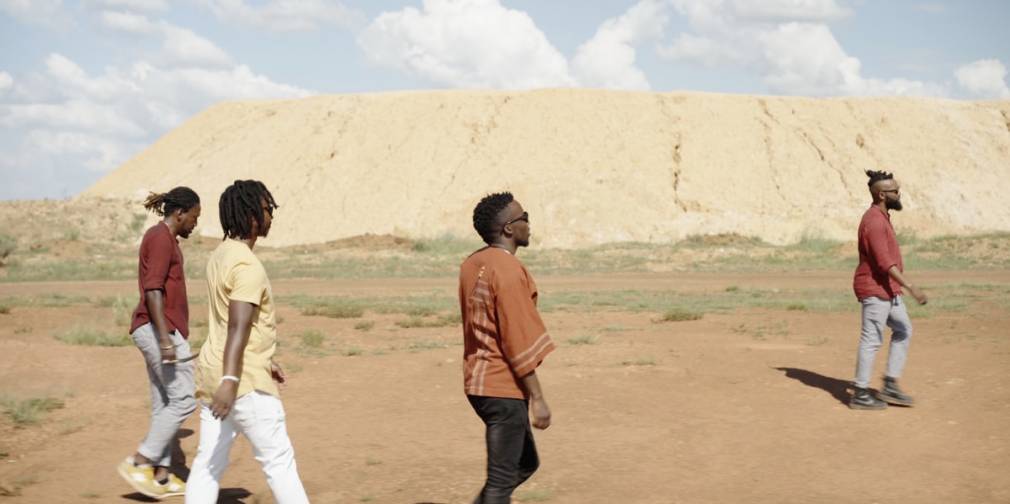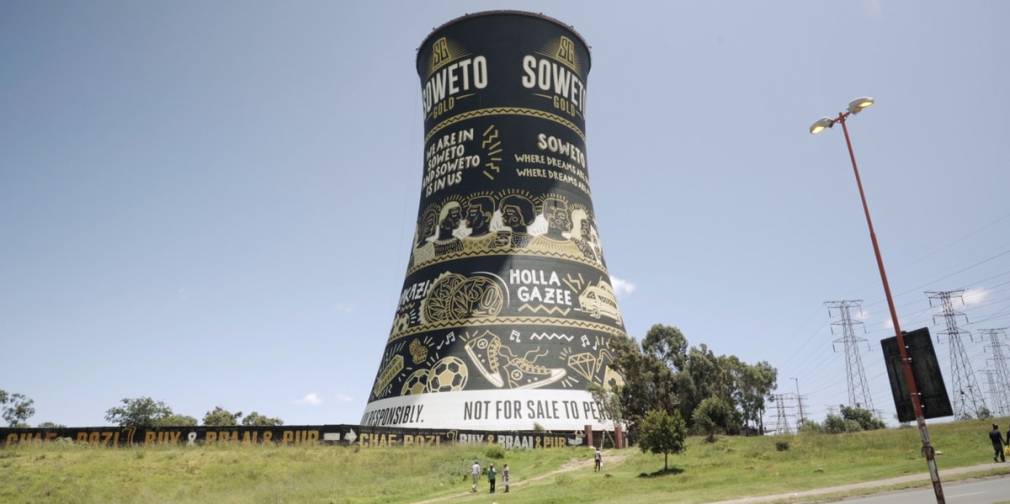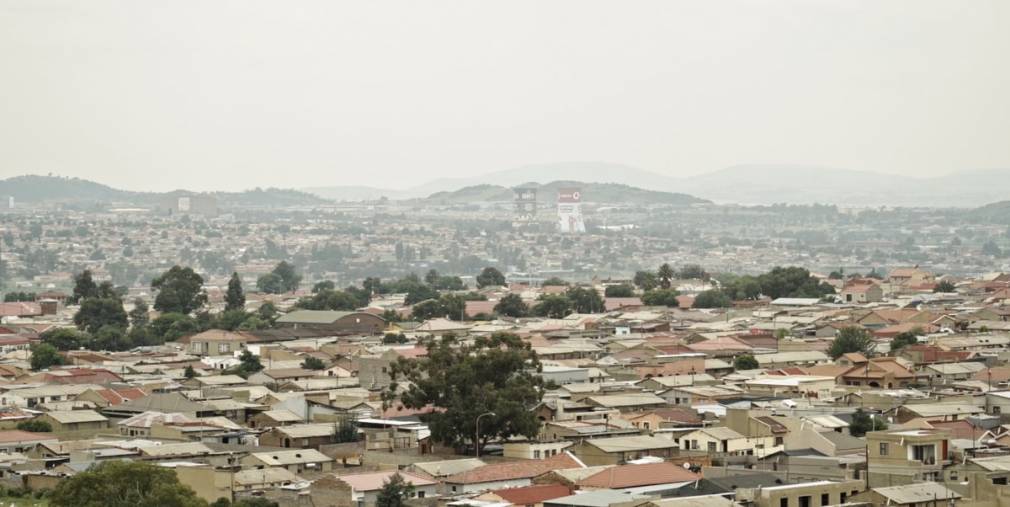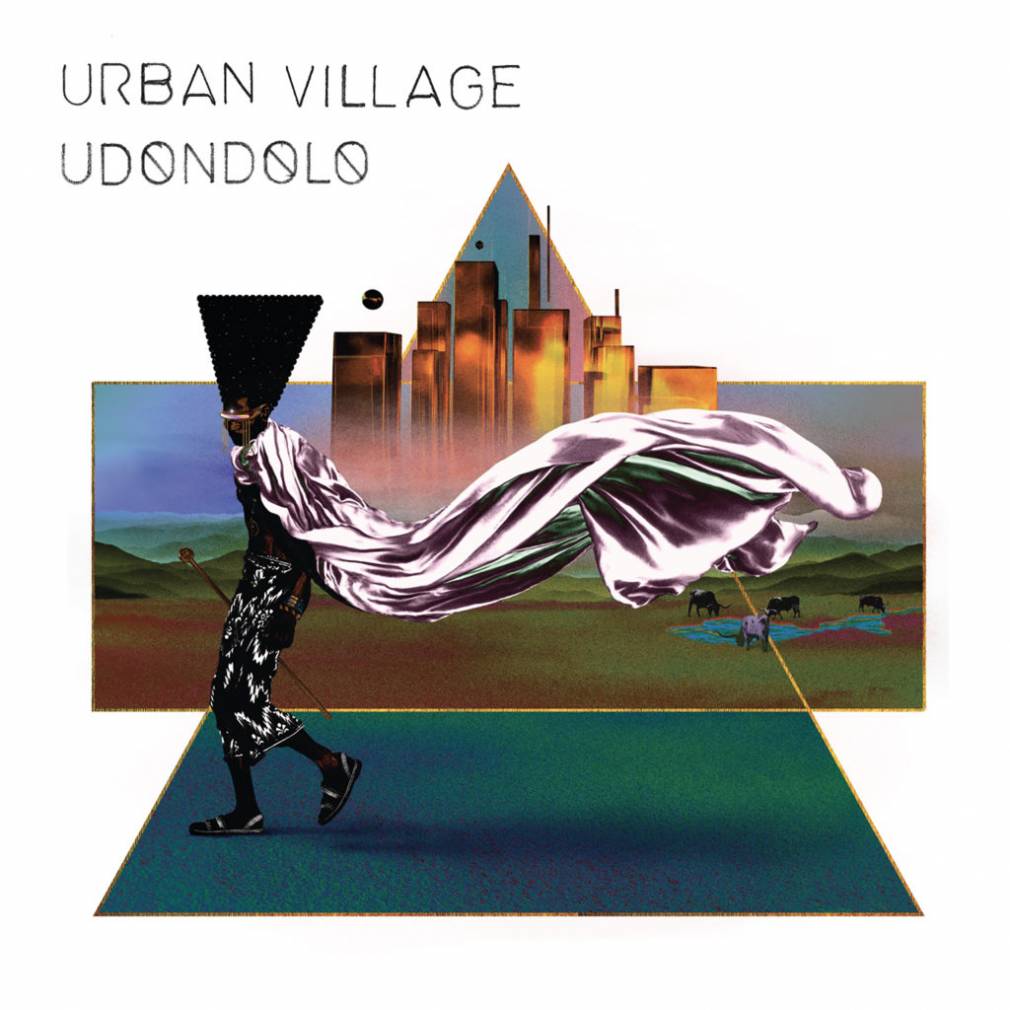The immersive new documentary from NØ FØRMAT! & Oléo films introducing us to Urban Village is both a biography of a band and a place. Opening in Paris at NØ FØRMAT!’s fifteenth birthday celebration with the band’s anthemic live performance of “Sakhisizwe” (To build a nation) – the story then cuts to South Africa where we see the band rehearsing the same song in the open air.
So begins an unhurried and brotherly film riding shotgun with this exciting new band, and who better to show us around their beloved “urban village” than these four sons of Soweto, Lerato, Tubatsi, Xolani, and Simangaliso.
Written and directed by Vladimir Cagnolari and filmed by Julien Borel, each member of Urban Village, gets a turn as narrator. As we tag along each scene builds upon the last, documenting the plurual’s personal relationship with their hometown and the larger history of Johannesburg, a city shaped by migration and colonialism.

Indeed we get a lesson on the cityplanning of apartheid from Urban Village’s vocalist and flautist Tubatsi Mpho Moloi. From the vantage point of the abandoned mine dumps that quite literally separate Joburg’s CBD (Central Business District) and the townships, Moloi guides our eye over the topography of apartheid.
This is a hopeful film that successfully illustrates and celebrates the band’s holistic idea of an “urban village”. For these four friends, the titular village stands for wholeness and unity, and their original music pays homage to the many cultures, customs, and languages that have shaped Johannesburg.
Over the course of the forty-minute film we are invited into this extended family and witness many special moments. Guitarist and songwriter Lerato Lichaba puts it thus: “Growing up in Soweto I had a lot of uncles. Not familial uncles but let me say neighbours we regard as uncles because they’d look after you.” We witness this lineage in a number of scenes where the band calls on elders for an informal maskandi guitar masterclass (Lichaba) and in a scene of pure ubuntu (“togetherness”) when Moloi and his uncles break into spontaneous backyard singing – in perfect harmony of course.

“It’s not the typical EPK but trying to go wider and show through the music and the band a reality of a place, a city, a country,” NØ FØRMAT! label boss Laurent Bizot told us on the phone from Johannesburg. Undondolo is the label’s first South African release and for Bizot it’s an opportunity to introduce a new band while updating the narrative around South Africa.
“We were first attracted by the roots of the project and the story,” says Bizot who made an equally affectionate documentary with the same team to introduce the Franco-Cuban concept album ¿Que Vola? two years ago. “A lot of our projects are encounters between two different artists with two different cultures or backgrounds. I’m interested in things that are rooted in a strong tradition but making them sound ‘today’.”
This new film fulfils that ambition, and from shebeens to sangomas, shows a forward looking city (and band) who know their history, both musical and social.

“We screened it in Soweto and people were amazed,” Bizot proudly remembers. “People told me, ‘it looks like our story! So thank you for that.’”
For NØ FØRMAT!, making documentaries fulfills a mission to provide those who invest in an album a direct connection to the story behind the music. The label’s membership offer “The Pass” is a way in which record buyers can help support such precious musical works in return receiving what the label describes as their “millésime”.
“We did that comparison because it’s like wine. You know – the 1994 is not the same as the 1995. It’s the production year. So it’s like our musical harvest,” Bizot told us.
With the livelihoods of musicians continuing to be impacted by the COVID-19 pandemic this cooperative model is a way in which we can be part of a village. A village this fraternal film will transport you to.
The Udondolo album is out via NØ FØRMAT!.
